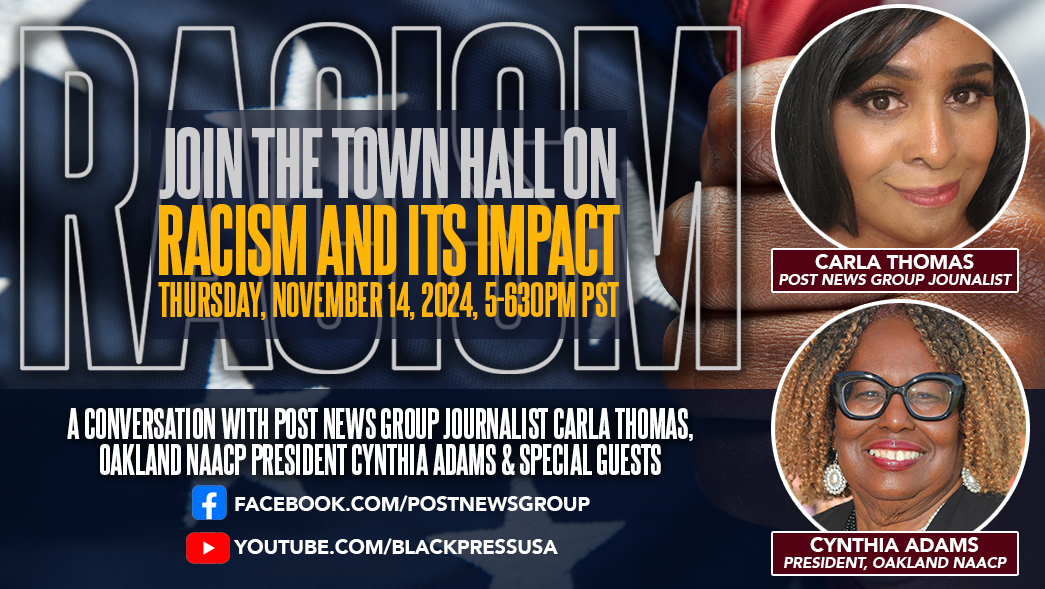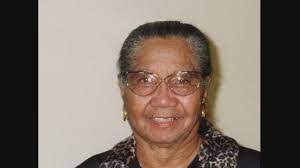Economy
Coach McKenzie helps diversify Final Four operations
MINNESOTA SPOKESMAN-RECORDER — The last time Minneapolis hosted the Final Four in 2001, Minneapolis North Boys’ Basketball Coach Larry McKenzie helped the NCAA run a camp for local youth. That was essentially McKenzie’s only contribution to one of the world’s most celebrated sporting events.
 By Ray Richardson
By Ray RichardsonThe last time Minneapolis hosted the Final Four in 2001, Minneapolis North Boys’ Basketball Coach Larry McKenzie helped the NCAA run a camp for local youth. That was essentially McKenzie’s only contribution to one of the world’s most celebrated sporting events.
Eighteen years later, McKenzie’s connection to the Final Four has gone through a major upgrade: from the gym to the board room.
“We needed to reach into some networks that we weren’t a part of,” Kate Mortenson, CEO of the Final Four local organizing committee, said of McKenzie. “Larry has made a huge difference with his wisdom, support, encouragement and inspiration to make sure the Final Four here is inclusive.”
Mortenson reached out to McKenzie two years ago to become a part of the committee’s Impact Advisory Council (IAC), a select group of business and community leaders brought together to ensure the Final Four provided economic and employment opportunities for people of color.
McKenzie has been an integral part of strategies that helped the IAC identify minority contractors and young people of color to work on the business side of the Final Four’s operations.
With the Final Four only a few days away, McKenzie is confident the work he and the IAC have done has been successful. “Without a doubt, the organizing committee has gone beyond what was expected to include people of color in this process,” he said.
“Everybody can’t benefit, but what I’m pleased about is how they went about the bidding and selection. There was genuine discussion about inclusion every time we met.”
Chuck Hill was among the first Black business owners to get a contract with the local organizing committee. Hill’s company, Programming Solutions Inc., based in Brooklyn Park, set up the communications systems for the committee’s downtown Minneapolis offices in 2018.
Hill’s staff installed phone lines, computers, internet and other communications requirements for Mortenson and her team.
“This has been a wonderful opportunity for my company,” said Hill. “I’ve been able to establish connections and network with people I ordinarily would not have been able to meet.”
Through referrals from the IAC, Mortenson said, the committee also agreed to a “six-figure contract” with Barry Rogers of BWK Rogers PC, a Black-owned certified public accounting firm in downtown Minneapolis. Rogers’ company was hired to handle the committee’s bookkeeping and financial support.
And for the major task of coordinating the numerous Final Four events, Cydni Bickerstaff, an African American woman and sister of former Timberwolves assistant coach J.B. Bickerstaff, was hired by Mortenson as vice president of operations. Bickerstaff, who moved to the Twin Cities from Washington, D.C. to take on the role, functions as second-in-command behind Mortenson on the committee’s management team.
“We have 60 percent female on our staff and 60 percent people of color working for us,” Mortenson said. “Too often, we have professional talent and qualified people who are under-utilized. We wanted to address that from day one.”
One of McKenzie’s key triumphs with his committee role was recommending North Commons Park Recreation Center to the NCAA for its annual Legacy Project Grant. In every Final Four city, the NCAA looks for community athletic organizations or facilities that could benefit from additional resources.
The North Minneapolis recreation center received a $200,000 grant from the NCAA Legacy Project in 2018. McKenzie said the money was used to give North Commons a complete “makeover,” including a new gym floor. A grand opening dedication at North Commons is scheduled for Tuesday, April 2 at 10 am.
“I don’t know many people who benefited when the Super Bowl was here [in 2018],” McKenzie said. “The way things have gone with this initiative for the Final Four, we could be a model for other cities. This takes away the excuse that diversity can’t happen.”
This article originally appeared in the Minnesota Spokesman-Recorder.
Activism
Bank of America Grants $200,000 to Richmond Housing Nonprofit
RNHS has provided housing services to Richmond residents since 1981. The organization develops, acquires, and/or rehabilitates single-family homes and housing developments in blighted or vacant lots in order to make them available as affordable homes for rent or purchase to low-income families.

The Richmond Standard
Richmond Neighborhood Housing Services, Inc. (RNHS) was one of two Bay Area nonprofits awarded a $200,000 grant over two years from Bank of America’s Neighborhood Builders program.
RNHS has provided housing services to Richmond residents since 1981. The organization develops, acquires, and/or rehabilitates single-family homes and housing developments in blighted or vacant lots in order to make them available as affordable homes for rent or purchase to low-income families.
The nonprofit also serves residents through education programs involving financial literacy programs, home loans, foreclosure prevention, and affordable rental counseling.
RNHS plans to use the $200,000 Bank of America grant to hire leadership staff, and to expand its Emerging Developers Program and Restoring Neighborhoods Program.
Through this grant program, RNHS will also benefit from comprehensive leadership training for its executive director and an emerging leader.
Since the Neighborhood Builders program’s inception in 2004, 59 nonprofits have been selected in San Francisco and the East Bay, with the bank investing nearly $12 million in philanthropic capital into these local organizations.
Along with RNHS, San Francisco-based mental health nonprofit RAMS also won a $200,000 grant this year.
“We’re proud to include RAMS and RNHS as the 2024 Neighborhood Builders,” said Gioia McCarthy, president of Bank of America San Francisco-East Bay. “Countless individuals, families and neighborhoods have felt the profound impact that these 59 Neighborhood Builder nonprofits have had in our area over the past two decades.”
Activism
LIVE! — TOWN HALL ON RACISM AND ITS IMPACT — THURS. 11.14.24 5PM PST
Join us for a LIVE Virtual Town Hall on the Impact of Racism hosted by Post News Group Journalist Carla Thomas and featuring Oakland, CA NAACP President Cynthia Adams & other Special Guests.
Thursday, November 14, 2024, 5 p.m. – 6:30 p.m. PST


Join us for a LIVE Virtual Town Hall on the Impact of Racism hosted by Post News Group Journalist Carla Thomas and featuring Oakland, CA NAACP President Cynthia Adams & other Special Guests.
Thursday, November 14, 2024
5 p.m. – 6:30 p.m. PST
Discussion Topics:
• Since the pandemic, what battles have the NAACP fought nationally, and how have they impacted us locally?
• What trends are you seeing concerning Racism? Is it more covert or overt?
• What are the top 5 issues resulting from racism in our communities?
• How do racial and other types of discrimination impact local communities?
• What are the most effective ways our community can combat racism and hate?
Your questions and comments will be shared LIVE with the moderators and viewers during the broadcast.
STREAMED LIVE!
FACEBOOK: facebook.com/PostNewsGroup
YOUTUBE: youtube.com/blackpressusatv
X: twitter.com/blackpressusa
Business
With Immigration Reform on the Table, Advocates Put Human Face on Calif’s Migrant Farmworkers
About 99% of the commercially grown crops consumed by people across the United States come from California, according to data compiled by the California Department of Food and Agriculture (CDFA). Between half and one-third of the farmworkers who help to grow, tend, harvest and package these crops live in the Golden State. That’s about 500,000 to 800,000 workers. Astonishingly, 75% of them are undocumented.

By Edward Henderson
California Black Media
About 99% of the commercially grown crops consumed by people across the United States come from California, according to data compiled by the California Department of Food and Agriculture (CDFA).
Between half and one-third of the farmworkers who help to grow, tend, harvest and package these crops live in the Golden State. That’s about 500,000 to 800,000 workers.
Astonishingly, 75% of them are undocumented.
“People are very afraid,” said Manuel Ortiz Escámez, a sociologist, audio-visual journalist, and co-founder of Peninsula 360, a news organization based in Redwood City.
“I hold interviews with people who later call and say, ‘Please do not publish anything, because I’m afraid of what could happen,’” he added.
Escámez spoke last month during a news briefing organized by Ethnic Media Services (EMS) that addressed the plight of migrant workers in California, particularly those who live in the United States without legal status.
During an election year when immigration is a polarizing issue with strong opinions on all sides, Escámez says the lives and critical contributions of farmworkers have been reduced to soundbites or barbs in Left vs. Right talking points.
The fervent anti-immigration rhetoric these debates generate can brew hate and motivate hate crimes and hate incidents against migrants, creating an atmosphere of fear and danger among California’s farmworkers, advocates warn.
In these situations, the debate shifts from the virtues of legal vs. illegal immigration to politicians scoring political points by finding a group to blame for the country’s problems.
“Power in politics needs to invent a physically and morally repugnant enemy who wants to take what’s yours because the feeling of emergency creates unity and the need of a savior,” said Escámez. “That’s why migrants have always been the ideal enemy of some U.S. political campaigns … and the data shows that it works.”
No matter where Californians stand on immigration, the contributions migrant farmworkers make to California’s economy and the country’s food supply are undeniable.
In February 2024, the nonpartisan Congressional Budget Office (CBO) calculated that immigration will generate a $7 trillion boost to gross domestic product over the next decade. A vast majority of these contributions come from immigrants like California’s farmworkers who perform jobs and endure conditions many Americans choose not to.
“I’m undocumented with a sliver of privilege. I’m still in a precarious position, but millions of people would love to be in my shoes,” said Gustavo Gasca Gomez, immigration outreach specialist and a Stop the Hate coordinator at the Fresno-based Education and Leadership Foundation.
“I can work, and I have social security. But I can’t vote or leave the country and return without express permission. And before I was a DACA recipient in 2012 I was a farmworker right out of high school,” said Gomez. “The work is difficult. It’s hot, dirty and tedious. It makes your mind numb in many ways. But it’s a job that the entire country depends on.”
This resource is supported in whole or in part by funding provided by the State of California, administered by the California State Library in partnership with the California Department of Social Services and the California Commission on Asian and Pacific Islander American Affairs as part of the Stop the Hate program. To report a hate incident or hate crime and get support, go to CA vs Hate.
-

 Activism4 weeks ago
Activism4 weeks ago‘Jim Crow Was and Remains Real in Alameda County (and) It Is What We Are Challenging and Trying to Fix Every Day,’ Says D.A. Pamela Price
-

 Activism4 weeks ago
Activism4 weeks agoOakland Post: Week of October 30 – November 5, 2024
-

 Alameda County3 weeks ago
Alameda County3 weeks agoD.A. Price Charges Coliseum Flea Market Vendors in Organized Retail Theft Case
-

 Activism4 weeks ago
Activism4 weeks ago‘Criminal Justice Reform Is the Signature Civil Rights Issue of Our Time,’ says D.A. Pamela Price
-

 Activism2 weeks ago
Activism2 weeks agoLIVE! — TOWN HALL ON RACISM AND ITS IMPACT — THURS. 11.14.24 5PM PST
-

 Bay Area3 weeks ago
Bay Area3 weeks agoOakland Mayor Sheng Thao’s Open Letter to Philip Dreyfuss, Recall Election’s Primary Funder
-

 Activism4 weeks ago
Activism4 weeks ago“Two things can be true at once.” An Afro-Latina Voter Weighs in on Identity and Politics
-

 Bay Area3 weeks ago
Bay Area3 weeks agoPoll Shows Strong Support for California’s Controversial Prop 36 Crime Initiative


























































